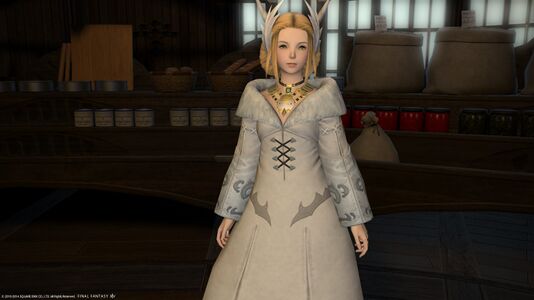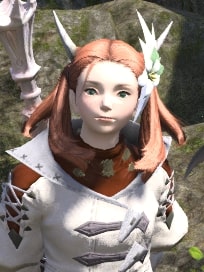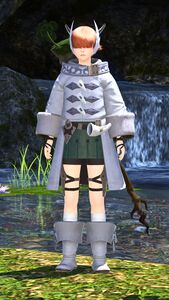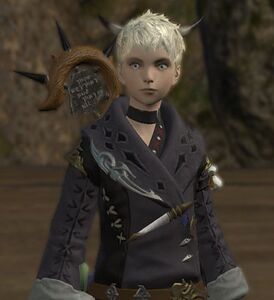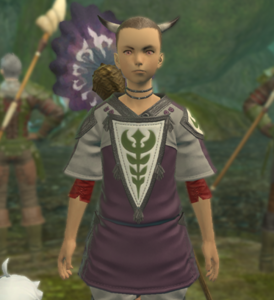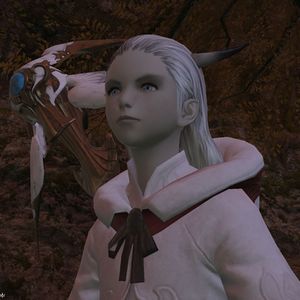Padjal
“There are none in Eorzea so foolish as to suggest the wise Padjali leaders of Gridania might be of inferior stock. Yet if we are to compartmentalize the realm's denizens based on whether they are to be counted amongst the five races, then where does that leave the Seedseers? Their fawn-like horns, their ceased aging, their ability to commune with the elementals, are all traits more commonly associated with those peoples dishonored with the "beastmen" designation.
— Encyclopædia Eorzea volume II
Padjals (adj. Padjali) are a secretive type of Hyur Midlander who grow horns and appear to stop aging. Visually, boys tend to have darker horns than girls, and most appear between the ages of 12-15. However, their true age can be far older, as comments by Conjurer Guildmaster E-Sumi-Yan imply. The children who become Padjal are supposedly chosen by the elementals of the Black Shroud and develop especially keen attunement to their will. Given that, the Hearers of Gridania are often Padjals, and the Conjurers' Guild seeks out any new children who awaken to their abilities in order to train them to control the newfound power.
Gridanian leadership features Padjals in most prominent positions of power, with Elder Seedseer Kan-E-Senna being the de-facto leader of the city-state and chief commander of The Order of the Twin Adder. The Seedseer Council is also composed predominantly of Padjals.
Language
The Padjali language, known only by the Padjal themselves, are sounds made by the aetheric waves that Padjal receive when communing with the elementals. Unlike Eorzean, when several words are used in reference to a singular concept, the Padjal separate the words with hyphens, rather than spaces (one such example is with their names).[1]
Nomenclature
Padjal names are comprised of three words. The first two words form the forename, while the final word is the surname. A short vowel-based word—often only a single letter—is combined with a longer word to form the forename. For males, the vowel-based word is the first of the three words, however, for females, it is the second word.[1]
Additional Information
- See also: List of conjurer quests and List of white mage quests
Trivia
- The Padjali language is loosely based on the Ainu people, an indigenous community of northern Japan.[1]
